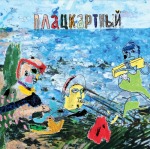One lovely sounding idea that I completely disagree with is the idea that all artists and all recordings are somehow equal at the point of issue, their merits divorced from the context of their production and discovery. People who claim that they see mainstream and undeground music in essentially the same way are through that very process choosing to favour the mainstream, the very existence of which has been helped along by numerous factors before you even encounter it.
An underground record, especially one from a remote corner of Japan with minimal music infrastructure, by musicians whose day jobs make touring next to impossible, does not come to you on an equal footing with a mainstream release, which makes its discovery all the more precious a thing and all the more worthy of your excitement and interest.
Mechaniphone were probably my biggest new discovery of 2015, and their position as the most part-time of part-time bands, in the far western outpost of Nagasaki, means they will never enjoy even a tiny percentage of the credit even a similarly noisy, rhythmically complex band would receive in Tokyo.
I wrote about what makes i ∞ u such a terrific EP back in September, and on its musical merits alone it deserves praise as one of the most exciting new releases of the year. The mixture of post-hardcore rhythms and energy with moments of towering Sublime Frequencies-esque melody is as spine tingling today as it was then, drawing influences from many of the best Japanese underground bands of the past ten years (Afrirampo and Hyacca to name the two that jump out most immediately) without ever seeming like a straight copy.
However, the intersecting factors that made its existence such an unlikely thing in the first place add an extra layer of urgency and importance to it. Would I have ranked the exact same album from a buzzy Tokyo band this highly in my list? Yes, sure, but would I have taken quite as much pleasure and satisfaction from doing so? Not by a long shot.







